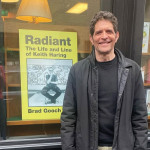The topic was huge: “Ending AIDS: Why the World Can’t Wait and What You Can Do.” So huge, in fact, that it took no fewer than seven of the world’s top AIDS minds to tackle it. They assembled on one stage at New York University December 4—as more than 1,000 students and faculty looked on—to address the global response to the epidemic. This was the second time in two months that NYU students gathered to hear experts discuss AIDS. Recently, NYU hosted Stephen Lewis, formerly the special envoy to United Nations Secretary Kofi Annan and currently the president of the board of the Stephen Lewis Foundation in Canada. As was true of the night that Lewis enlightened the students about the pandemic, the discussion on ending AIDS was heated on December 4, three days after World AIDS Day. The subjects ranged from George W. Bush’s President’s Emergency Plan for AIDS Relief (PEPFAR), to combating stigma in developing countries, to the role and value of global charities. The forum was sponsored NYU’s Center for Global Affairs, the Vital Voices Global Partnership and the Global Business Coalition on HIV/AIDS, Tuberculosis and Malaria (GBC).
In the days leading up to the forum, Vital Voices and POZ invited visitors to submit their questions to the panel via videos posted on YouTube. Those questions helped shape the discussion, moderated by former U.S. ambassador to the United Nations Richard Holbrook, now the GBC’s president and chief executive officer. In his introduction to the discussion, Holbrook noted the recent revision of UNAIDS’ global statistics—which now indicate that roughly 33 million people worldwide are living with HIV as opposed to the agency’s previous estimate of 40-plus million. Despite the apparent decline in AIDS cases, Holbrook warned the audience not to celebrate. He indicated that the numbers reflected improved surveillance methods that resulted in more accurate reporting.
“Don’t believe the word progress until it’s real,” said Holbrook. “[This doesn’t mean that] 7 million people ... have been cured of AIDS. We need to admit the truth: We are still losing [the battle against AIDS].”
Heads across the panel nodded as Holbrook emphasized that efforts to fight AIDS must be redoubled. The panelists included: Ambassador Mark Dybul, U.S. Global AIDS Coordinator for the U.S. President’s Emergency Plan for AIDS Relief; MTV Networks International Senior Vice President Georgia Arnold; Pulitzer-, Polk- and Peabody-Prize- winning journalist Laurie Garrett; Dr. Michael Rabbow of the HIV Policy and Public Affairs at Boehringer Ingelheim, Nancy Mahon, executive director of the M·A·C AIDS Fund; and Dr. Suniti Solomon, founder and director of the Y.R. Gaitonde Center for AIDS Research and Education in Chennai, India.
In response to the first question about why it is so difficult to combat the spread of AIDS, Solomon, who diagnosed India’s first AIDS case in 1986, explained that cultural barriers in India have made preventing infection and treating the country’s 2.5 million people living with the virus a relentless struggle. “The thing I am most worried about is treatment literacy,” said Solomon. “In India, there is a culture where if you feel better, you stop drugs. There is no counseling on drug adherence.”
Dybul, meanwhile, explained that President Bush recently announced a plan to double PEPFAR funding to fight HIV/AIDS around the world, pledging $30 billion over the next five years. While opinions of the president were decidedly mixed onstage, Dybul defended the program, saying, “It reflects the compassion and generosity of the American people.” He added that PEPFAR has bipartisan support and funds AIDS services, treatment and prevention in 15 target countries—but not in India, as Holbrook pointed out. “We can’t go everywhere,” Dybul admitted. He pointed out that PEPFAR’s efforts to get treatment to people around the world were helping to establish an infrastructure that could potentially deliver other types of health care as well.
Arnold, who is the executive director of MTV’s Staying Alive Foundation—currently one of the largest mass-media prevention platforms in the world—responded to the question of what makes a compelling public service announcement about AIDS by saying she believes that online testimony of people living with AIDS and social networking can be effective tools for spreading AIDS awareness. “Online [awareness] campaigns are crucial,” Arnold told POZ. “But you need to make sure that you’re aiming them at the right audience.” Arnold talked about the power of celebrities talking about AIDS, emphasizing that the messages must be culturally relevant to those who are targeted by them.
Then the night’s discussion turned to the issue of what Garrett calls the endless “cycle of charity,” wherein rich countries give money and resources to help poorer nations rather than using funds to help poorer nations become self-sustaining. Because of the nature of AIDS and the fact that people can live a full lifetime on treatment, the cost of caring for millions of people over what could be a 40-year period is daunting. Garrett suggested that “we make no assumption about the capacity of people on the ground in the nations we are funding to fight AIDS” and advocated that self-sustainability be a goal of our charitable outreach. “We have stepped into a territory that we have never been in before,” said Garrett, referencing the enormous economic drain that AIDS places on rich nations. “We have to reimagine this notion of how money flows from the rich to the poor.”
Dybul advocated offering financial support to developing nations, up front, for longer, perhaps 10-year intervals, saying that “the idea that a health system is going to be self-sustainable without our help isn’t going to happen for a long, long time.” Dybul claimed that only an individual country knows best how to expand its grassroots pilot programs that prove successful into national efforts. “We give people handouts then make them come back and beg again in one year,” he said. “We trust the people [we are working with through PEPFAR], and we need to give them the time and support they need.”
The panelists also discussed the need for tactics to fight the spread of HIV in Russia, particularly among the intravenous-drug-using crowd, which comprises the majority of cases there. The misperception that HIV won’t spread from those using IV drugs to the general population was debunked, and there was debate over the advantages of needle-exchange programs versus methadone-substitution programs (which are supported by PEPFAR).
After nearly two hours of vigorous debate, the specific strategies and tactics for how best to end the AIDS pandemic remained up for discussion. But those in the audience could agree on one thing: They’d learned much from some of the brightest minds wrestling with the problem of how to stop AIDS from continuing to spread around the world. “I definitely didn’t know as much as I thought I did about AIDS before tonight,” said Barrett Pall, a third-semester communications major. “And it’s clear that there is a lot more that needs to be done that’s not being done.” Given that the hall was filled with many potential leaders in business, politics, health care, science and finance, we can only hope that the communal brainpower of those in attendance—both in the audience and on the stage—will continue to contemplate how we might finally end AIDS.
Click below for exclusive POZ.com interviews with Ambassador Mark Dybul and Dr. Suniti Solomon.
Video not available
Video not available






Comments
Comments